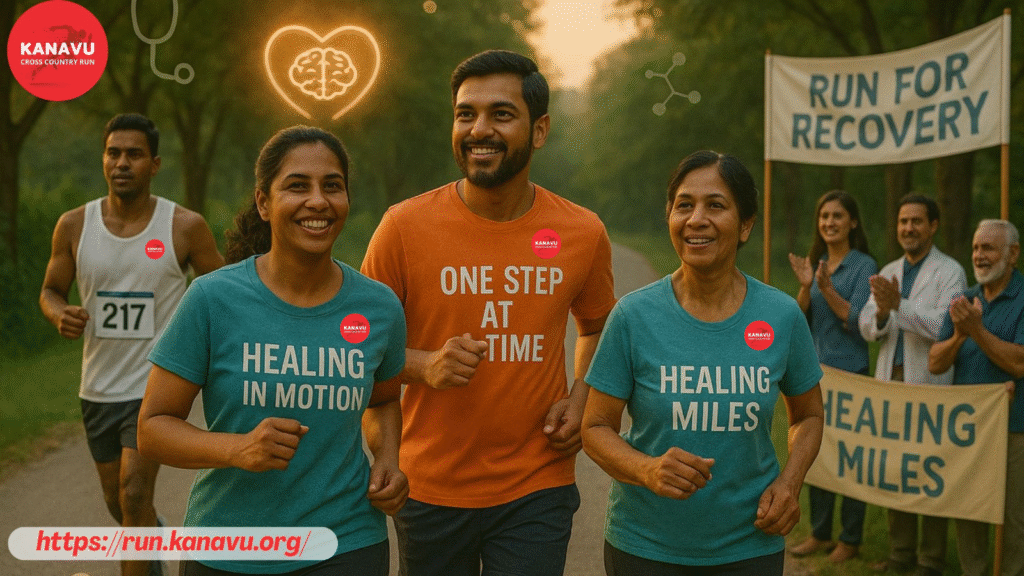Marathon running is no longer just a test of endurance — the healing miles are fast becoming a transformative prescription for both physical and mental well-being. With more people lacing up their shoes to reclaim their health, marathons are proving to be more than races — they are journeys toward healing. From reducing the risk of chronic diseases to boosting emotional resilience, running long distances is emerging as an accessible form of lifestyle medicine for people of all ages and backgrounds.
A Workout with Lasting Benefits: Physical Healing Miles
Scientific studies continue to affirm what seasoned runners already know — training for and running a marathon can deeply enhance physical health. The long-term commitment to endurance running brings about remarkable physiological benefits:
- Improved cardiovascular strength: Regular training increases heart efficiency, reducing the risk of heart disease.
- Lower blood pressure and cholesterol: Long-distance running improves circulation and helps balance lipid profiles.
- Enhanced lung capacity: Aerobic conditioning boosts oxygen uptake and endurance.
- Stronger joints and muscles: Contrary to myths, moderate and progressive long-distance running strengthens rather than harms the knees and joints.
- Boosted immunity and metabolism: Consistent running improves immune responses and helps manage weight more effectively.
For individuals managing obesity, diabetes, or hypertension, incorporating marathon training — under medical supervision — can be life-changing.

Mental Miles: Running Toward Emotional Resilience
Beyond the physical, marathons are a profound tool for mental healing. The solitude of the long run, the rhythm of breath and stride, and the consistent routine provide a meditative space for reflection and emotional regulation. Runners report:
- Improved mood and reduced anxiety: Thanks to endorphins and serotonin boosts.
- Greater mental clarity and focus: The structured training helps reduce brain fog and builds attention.
- Confidence and self-worth: Crossing each milestone instills a sense of achievement.
- Better sleep and stress management: Running helps regulate circadian rhythms and reduces cortisol levels.
For those grappling with depression, burnout, or trauma, marathon running becomes a moving form of therapy — a path where each mile helps release emotional weight.
More Than a Solo Sport: The Power of Community in Healing
One of the most uplifting aspects of marathon culture is the sense of community it fosters. Whether it’s joining a local running club or finding motivation through social media running groups, the training journey is rarely walked — or run — alone.
- Training groups offer accountability and motivation.
- Race day becomes a celebration of collective effort and endurance.
- Shared struggles and triumphs create lasting friendships and emotional support networks.
This social engagement becomes especially meaningful for individuals recovering from physical ailments or emotional loss. You don’t just heal faster with people — you heal stronger.
From Prescription Pads to Running Shoes: Doctors Are Onboard
Increasingly, physicians and rehabilitation experts are advocating structured running programs as part of holistic health plans. Under guided supervision, patients recovering from:
- Obesity and metabolic syndrome
- Cardiac events
- Cancer treatments
- Mental health disorders
are finding new strength and purpose through long-distance running.
Many wellness centers and therapy groups are now hosting “healing marathons” — events that integrate fitness, counseling, and community engagement. These aren’t competitive races but rather symbolic journeys of resilience and recovery.
Lace Up for a Healthier Life
So, if you’ve ever considered running a marathon — don’t just do it for the medal.
Do it for the healing miles that will transform not only your body but also your heart and mind.
Each mile is a quiet act of resilience, a step away from the old, and a leap toward a better version of yourself.

Remember, healing doesn’t always happen in hospitals — sometimes, it starts on the road.

